Tina Arena launches her Adelaide Cabaret Festival program
Tina Arena evokes the sounds of her Italian childhood in a new show for the Adelaide Cabaret Festival where she is artistic director.
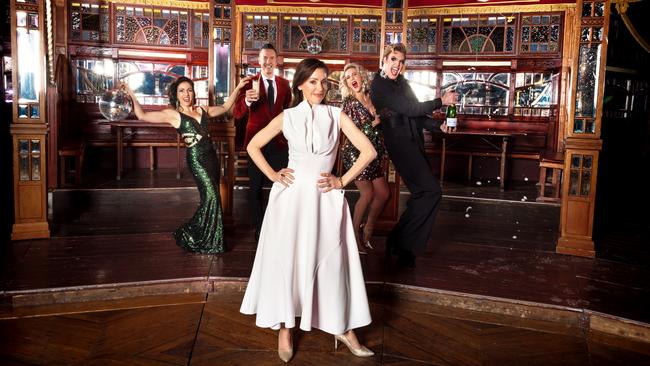
You didn’t have to belong to an Italian family in the 1970s and 80s to know the songs of Umberto Tozzi. The Italian songwriter’s two biggest hits, Ti Amo and Gloria – both of them covered in English by Laura Branigan – were on high rotation at Tina Arena’s place when she was growing up in Melbourne.
Out in the sunroom was a record player and a stack of singles, including Tozzi’s hit songs. Arena says the memory of dancing to them is as vivid as the smells from the kitchen of her mother’s sugo simmering on the stove, and the coffee percolator gurgling umpteen times a day.
“I remember dancing in the sun room as a little girl,” says Arena, whose parents were migrants from Sicily. “Mum and Dad had this great stereo, which they still have in the garage – it hasn’t moved, it’s in mint condition, a beautiful piece.
“We had this massive sun room at the back of the house, the stereo was in the corner – 45s were played, albums were played. We’d put records on, and my sister Nance and I would be dancing.”
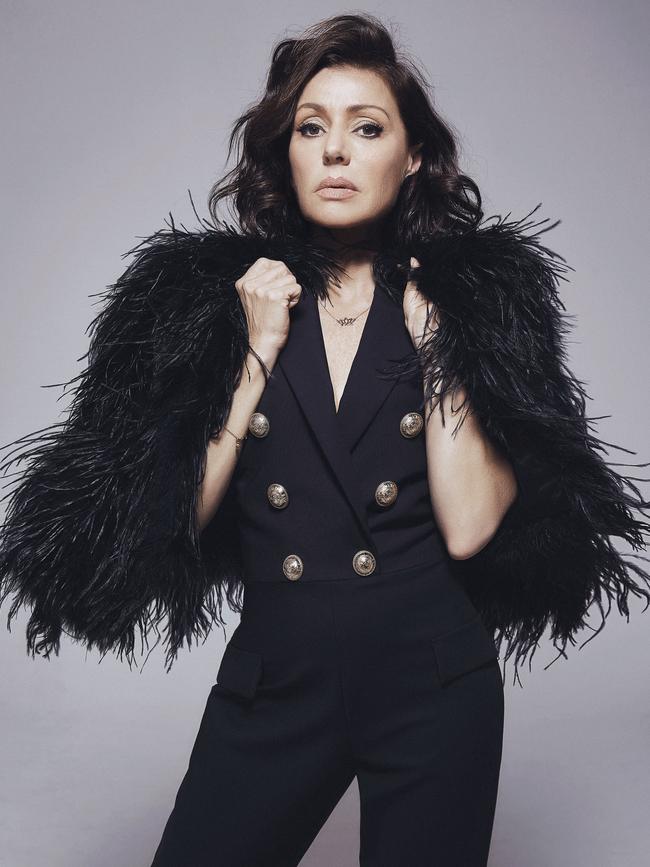
Capturing the sounds, if not the delicious smells, of a multicultural childhood is the idea behind Arena’s new concert, called Songs My Mother Taught Me, at the Adelaide Cabaret Festival. Arena will be singing alongside other artists from culturally diverse backgrounds, including Indigenous singer Jess Hitchcock, Zimbabwe-born soul and R&B artist Thando, Israel-born musician Lior, Canadian-born singer Wendy Matthews, and Sophie Koh, who has Chinese-Malaysian heritage. Playing at Her Majesty’s Theatre in Adelaide, it’s one of the highlights of this year’s Cabaret Festival, where Arena is also artistic director.
She’s careful not to give away too many surprises, but expect to hear Arena sing at least one of Tozzi’s hits. The concert program, built around people’s familial and cultural connections with music, was one of the first ideas to come from her discussions about the festival.
“What I would love to see is a bunch of us coming from different worlds and different cultures and telling our stories – what was it that inspired us about music, what were our musical memories, what did they represent,” Arena says.
Arena is best known as a recording and concert artist and for her hit singles Chains and Sorrento Moon, but she has also appeared on stage in musicals including Notre Dame de Paris and Evita (Arena is tipped to return to sing Don’t Cry for Me Argentina in a stadium tour of the Andrew Lloyd Webber show).
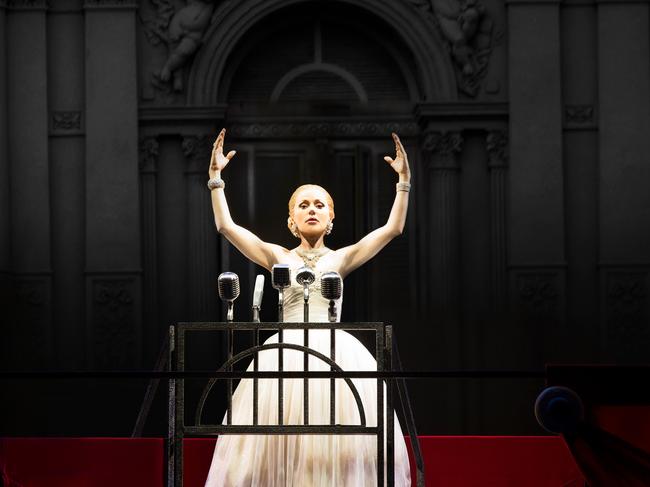
In 2002, she took the stage as Sally Bowles, the posh English girl slumming in mid-war Berlin in Kander and Ebb’s musical, Cabaret. The show virtually defined the atmosphere and style of German kabarett (or a version of it) for English-speaking audiences.
Wearing fishnet stockings and a sultry pout, she got to sing the famous number, Cabaret.
But despite Arena’s five decades in showbusiness – she started as “tiny Tina Arena” on Young Talent Time in 1976, at age eight – and her many ventures in live performance, she has never done cabaret as the term is often, and perhaps narrowly, understood: a singer and a piano in a small, intimate room.
“But I have done scaled-down things in that kind of environment,” Arena says. “The intimacy is what I love about cabaret. I love the fact that it’s scaled-down and that you really see the person. You can’t really hide in cabaret. All of that intimacy, that gorgeous exchange, I really love it. It’s about the essence of who you are, and what you’re there to do.”
Arena has put her stamp on a festival program that, as in previous years, breaks open the box of what cabaret can be. It covers many bases, from jazz standards and show tunes to rock, soul, gospel and chamber opera. There’s comedy, burlesque, drag and even life drawing, where punters can learn about tassels, sequins and other paraphernalia of cabaret costume while making sketches of a model wearing them.
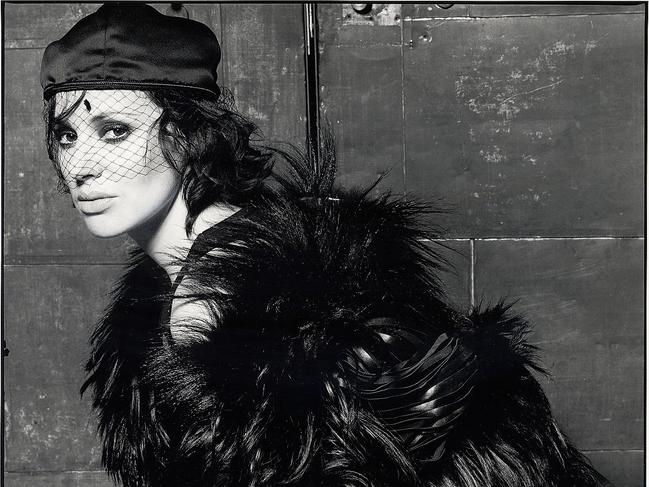
Marcia Hines will appear in her new show The Gospel According to Marcia, taking the Boston-born singer back to her roots in the church and gospel music. How to Kill Your Husband (and Other Handy Household Hints), based on a novel by Kathy Lette, is a revival of the comic opera with music by Alan John. There’s a star-studded tribute to musical-theatre genius Stephen Sondheim, who died last year, and shows turning the spotlight on singular talents including Meow Meow, Hayden Tee and Emma Pask.
A new show supported by the bequest of festival founder Frank Ford centres on the life of Vali Myers, who escaped staid Melbourne in the 1940s for bohemian Paris and later New York. An eccentric character – she’s described as “hermit witch” who tattooed her own face – her story is being brought to the stage with music written and performed by Victoria Falconer.
Arena, 54, seems at times to embrace the role of pop diva and then to shun it. She’s probably tired of turning out her well-worn hits, and I Want Your Body is not often on the playlist, though it’s still a fan favourite.
She surprised and delighted many when she found her inner rock chick, singing the Divinyls’ Boys in Town at the 2020 bushfire relief concert, and AC/DC’s Back in Black last New Year’s Eve.
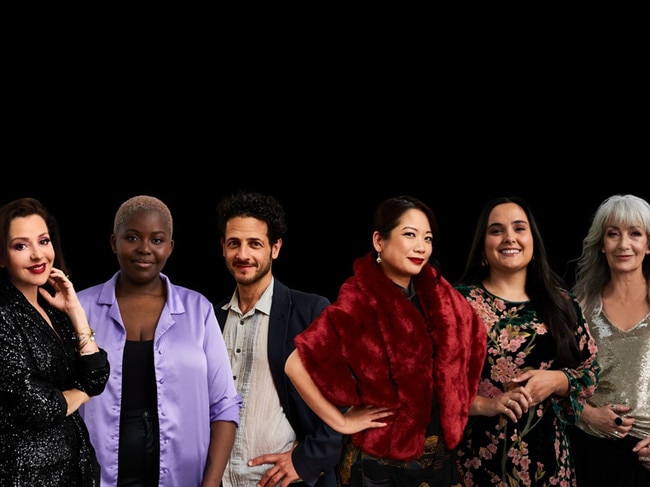
During the Covid lockdowns, and as a way of relieving boredom, she started a series of homemade video streams. Her “Quarantina” sessions became a thing on Saturday evenings, when she would pour a glass of wine and hold court on Instagram. “It was great, just having good honest conversations with people was really fun,” she says. “I realised maybe two glasses is my limit now. But there were some great giggles during those Quarantinas.”
She also started writing new music, and before long had a collection of songs. At the time of this interview, she was involved in the mixing of her new album of original material, sung in English. She’s already started on another album in Italian.
Arena is not afraid to use her public profile to speak up for art and for artists. Inducted into the ARIA Hall of Fame in 2015, she was widely applauded for a speech in which she called out ageism and sexism in the music industry. Last year, during Melbourne’s long lockdowns, she spoke out against the ongoing restrictions on live entertainment when sports events were somehow allowed to go on. “Sport is a great thing, but life is not just about sport, life is about art and culture,” she told Studio 10’s Angela Bishop.
Scott Morrison, a declared Arena fan, had her appointed to the board of the Australia Council in 2019 – though her low rate of attendance hasn’t escaped media scrutiny. “Some things we can be present for and some things we can’t be present for,” she says. “That’s really all I can say about it.”
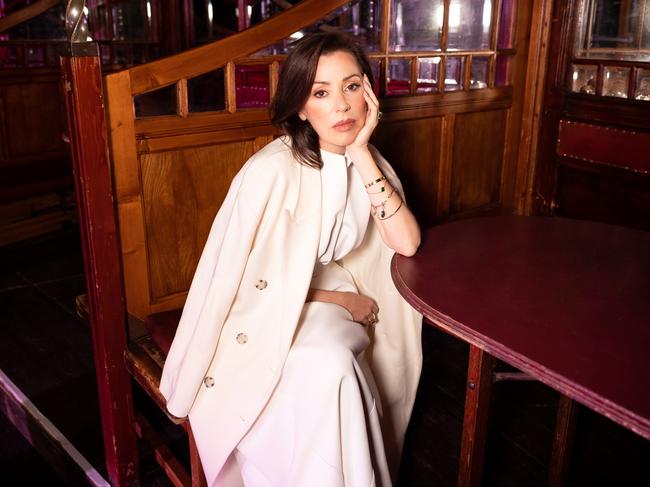
How does she think the arts sector has emerged from the pandemic? Answering as a creative artist, she detects a note of introspection, a “greater sense of the essence of who you are and what you do”. The pandemic also exposed gaps in the employment conditions of artists and arts workers, where some were able to access JobKeeper and others in casual employment were left out. Arena says it’s highlighted a need for artists to be more businesslike in the way they manage their affairs.
“I think we have learnt a lesson in how to set ourselves up better in the future – a little bit better (than) living day to day, or gig to gig,” she says. “How can we move forwards positively, and not find ourselves in that predicament again? What was very recognisable was that when art is missing from a culture, there is a sense of deprivation. Any culture is deprived when art isn’t a big part of it.”
In the lead-up to Arena’s debut as a festival director, she says it’s been exciting work to put a program together, and she can’t wait to welcome guests to Adelaide, starting on Friday evening.
“Creativity is a very big part of what I do, because I create my own work – I create material, I put records together, all that sort of stuff,” she says. “But I’ve never done it in this context as an artistic director and I really love it. I’ve learned quite a lot about serving people – we’re there to serve the community in the form of art. Putting something like this together has been challenging and really wonderful.”
Adelaide Cabaret Festival, various venues, June 10-25.



To join the conversation, please log in. Don't have an account? Register
Join the conversation, you are commenting as Logout